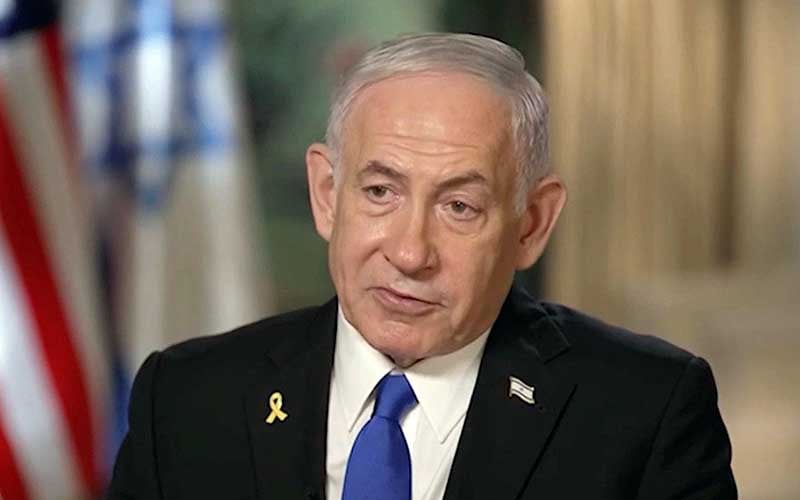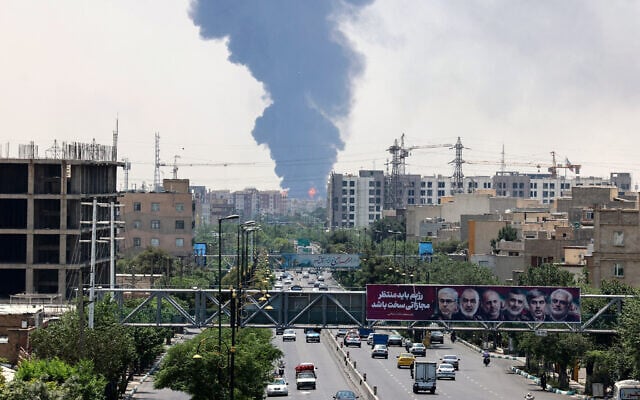



Prime Minister Benjamin Netanyahu said he was “confident” he will be able to reach a deal to free hostages held in the Gaza Strip, in an interview with US media aired late Saturday.
Speaking to Fox News’ Mark Levin, Netanyahu said that during his visit to Washington, DC, last week he had worked with US President Donald Trump on efforts for a deal to release half the hostages, both living and dead, in exchange for a 60-day ceasefire.
“I want as many saved. And in the process, we hope that we can get an arrangement where we can bring humanitarian aid to the civilian population [in Gaza] without having Hamas loot it,” Netanyahu said.
“That’s what they do. They loot it, jack up the prices and use the money to recruit 14-, 15-year-olds to their terror army. I hope that changes. So we’re working on it, but I think we’ll end up meeting all our goals, achieving the release and safe return of our hostages, all of them, destroying Hamas,” he said.
Netanyahu said the “only reason” the war was still going on was the hostages, and that Israel was making efforts not to harm them amid the war.
He has previously insisted he would not give up on the goal of destroying Hamas, and has so far rejected the idea ending the war in Gaza via a deal that would include the release of all the hostages.
In the interview, he described Gaza as “the last stronghold for Iran in our neighborhood,” after Hezbollah was seriously weakened in Lebanon during its war with Israel last year — which the Iran-backed terror group instigated with cross-border attacks a day after Hamas’s October 7, 2023 massacre — and the fall of Bashar al-Assad’s regime in Syria.
Reports have said that intense negotiations in Doha underway since last week for the 60-day truce and the return of 18 hostages to Israel — 10 living and 18 dead — are on the verge of collapse.
Sources familiar with the negotiations told The Times of Israel that this was due to Israeli demands regarding the redeployment and withdrawal of IDF troops during the ceasefire.
While Israel has agreed to ease some of its demands regarding troop redeployment, sources said the new series of maps depicting the partial withdrawal of IDF troops was not sufficient to satisfy Hamas.
Netanyahu filmed his interview — one of three granted to US media — while he was in Washington last week. He didn’t do any interviews with the traveling Israeli press.
Meanwhile, Netanyahu told Fox that the Iranian regime is “in deep trouble,” following the 12-day war with Israel.
Netanyahu said he would support an “exceptional deal” with Iran: “no enrichment, as President Trump and I say, no ballistic missiles, which could reach your shores, no ballistic missiles beyond what is allowed under international treaties — that is, 300 miles. And no terror axis.”
“Give me these three — it’s a different regime if it agrees to it,” he said. “If it doesn’t, just keep them at bay and let things roll where they may inside Iran.”
Netanyahu said that had Israel and the US not attacked last month, “Iran could have had a nuclear weapon within a year.” Previously, Israeli officials have said Iran was potentially only a few weeks away from producing nuclear weapons.
Israel said its sweeping assault — which began on June 12, 61 days after Trump set a 60-day deadline for a nuclear deal, and targeted Iran’s top military leaders, nuclear scientists, uranium enrichment sites, and ballistic missile program — was necessary to prevent the Islamic Republic from realizing its avowed plan to destroy the Jewish state.
On June 22, the US joined the assault, striking key Iranian nuclear facilities at Natanz, Fordo, and Isfahan. Two days later, the fighting ended with a US-brokered ceasefire.
Netanyahu also told Fox that the US under Trump is a “different America.”
“It’s the America that the entire free world has actually longed to see,” he said, adding that “if anyone deserves the Nobel Peace Prize, it’s President Trump,” listing US-brokered deals to end finding between Rwanda and the Democratic Republic of Congo, and India and Pakistan.
Netanyahu told Trump last week that he had recommended him for the prestigious award, and gave him a copy of a letter he had sent to the Nobel committee.
The prime minister added in the interview that it was an “understatement” that Israel was receiving appeals from neighbors who wanted better relations, but such talks would remain secret until the time was right to announce agreements.

